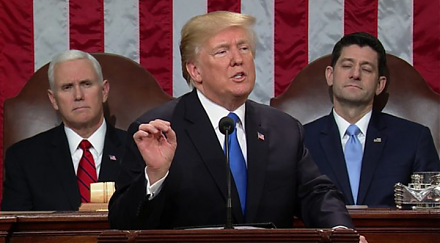

2022-09-25 09:34:00 Sun ET
corporate finance fama and french graham and harvey baker and wurgler agency theory corporate payout cash payout dividends share repurchases financial constraints financial lifecycle lower propensity to disgorge cash
Temporary market undervaluation often induces corporate incumbents to initiate a share repurchase program to boost the firm's stock price (Lakonishok and Vermaelen, JF 1990; Ikenberry, Lakonishok, and Vermaelen, JF 1995; Nohel and Tarhan, JFE 1998; Rau and Vermaelen, JFE 1998; Peyer and Vermaelen, RFS 2009; Dittmar and Field, JFE 2015). Firms often tend to engage in deliberate net income inflation in the pre-IPO or pre-SEO period to receive favorable corporate income results in the IPO or SEO year (Teoh, Welch, and Wong, JF 1998, JFE 1998). Moreover, firms choose to engage in deliberate net income deflation in the pre-share-repurchase year to receive favorable corporate income results in the post-repurchase period (Gong, Louis, and Sun, JF 2008). Share buyback can serve as a firm's response to temporary market overreaction to bad news such as stock analyst downgrades and pessimistic earnings forecasts (Peyer and Vermaelen, RFS 2009). Corporate incumbents time the stock market by repurchasing shares below the average relative stock price (Dittmar and Field, JFE 2015). Share repurchasers yield significantly positive Fama-French (JFE 1993) multi-factor alphas up to 36 months after the share buyback event.
In addition to temporary stock market undervaluation, there are several other reasons for corporate stock buyback. These reasons include:
Chen and Wang (JFE 2012) report that financially constrained share repurchasers experience subpar short-term and long-term post-announcement stock return performance. If firms face more severe financial constraints, lower corporate liquidity (as a combination of less cash and higher leverage) from share repurchases can be pernicious. Firms with less financial-constraints risk face greater financial flexibility and can thus afford to repurchase shares even at fair market values. CEO overconfidence in the form of late option exercise or press portrayal explains why financially constrained firms repurchase shares even though this buyback does not add to shareholder wealth maximization. Bliss, Cheng, and Denis (JFE 2015) empirically find that payout reductions in general, and repurchase reductions in particular, serve as a substitute form of corporate finance. Payout reductions are more likely in firms with higher debt ratios, more valuable real growth options, and lower cash balances (i.e. these firms are more vulnerable to substantial external financing shocks). This empirical pattern is more pervasive during tight credit years of the global financial crisis from 2008 to 2009 (Campello, Graham, and Harvey, JFE 2010). Unlike sticky and smooth dividend payments, share repurchases are flexible enough to provide cash proceeds for funding future investment opportunities (Brav, Graham, Harvey, and Michaely, JFE 2005).
Grullon and Michaely (JF 2002) propose the dividend-repurchase substitution hypothesis by empirically confirming the negative nexus between share repurchase intensity and excess dividend payout. Nowadays many public corporations have substituted share repurchases for cash dividends as the dominant form of corporate payout. Leary and Michaely (RFS 2011) and Michaely and Roberts (RFS 2011) find evidence in support of the common dividend-smoothing practice among large and profitable firms. Small and unprofitable firms that face risky investment growth opportunities alternatively tend to engage in share repurchases as the dominant substitute form of corporate payout.
Bens, Nagar, Skinner, and Wong (JAE 2003) suggest that share buyback helps moderate the impact of employee stock option (ESO) exercise on EPS dilution. Gong, Louis, and Sun (JF 2008) empirically find that firms engage in deliberate earnings deflation around share repurchase announcements for better post-announcement stock return and operating performance. These manipulative accounting practices such as deliberate EPS concentration and net income management serve as an alternative motivation for share buyback.
Grullon and Michaely (JF 2004) suggest that most share repurchases precede a decline in systematic risk or cost of capital but not an improvement in operating performance. The stock market underreacts to this decline in systematic risk or cost of capital due to gradual news diffusion (Hong and Stein, JF 1999; Hong, Lim, and Stein, JF 2000; Hong, Torous, and Valkanov, JFE 2007). The information content of share repurchases need not reflect any material change in the firm's relative stock market valuation but its systematic risk profile.
Massa, Rehman, and Vermaelen (JFE 2007) point out that share buyback sends a positive signal about the firm's financial capacity while this buyback sends a negative signal about the financial capacity of the firm's rivals in the same industry. In this light, many firms mimic the share repurchase decisions of rivals in the same industry. Babenko et al (JFQA 2012) empirically find that insider share purchases help strengthen the credibility of the firm's share repurchases prior to the stock market's more favorable reaction.
This analytic essay cannot constitute any form of financial advice, analyst opinion, recommendation, or endorsement. We refrain from engaging in financial advisory services, and we seek to offer our analytic insights into the latest economic trends, stock market topics, investment memes, personal finance tools, and other self-help inspirations. Our proprietary alpha investment algorithmic system helps enrich our AYA fintech network platform as a new social community for stock market investors: https://ayafintech.network.
We share and circulate these informative posts and essays with hyperlinks through our blogs, podcasts, emails, social media channels, and patent specifications. Our goal is to help promote better financial literacy, inclusion, and freedom of the global general public. While we make a conscious effort to optimize our global reach, this optimization retains our current focus on the American stock market.
This free ebook, AYA Analytica, shares new economic insights, investment memes, and stock portfolio strategies through both blog posts and patent specifications on our AYA fintech network platform. AYA fintech network platform is every investor's social toolkit for profitable investment management. We can help empower stock market investors through technology, education, and social integration.
We hope you enjoy the substantive content of this essay! AYA!
Andy Yeh
Chief Financial Architect (CFA) and Financial Risk Manager (FRM)
Brass Ring International Density Enterprise (BRIDE) ©
Do you find it difficult to beat the long-term average 11% stock market return?
It took us 20+ years to design a new profitable algorithmic asset investment model and its attendant proprietary software technology with fintech patent protection in 2+ years. AYA fintech network platform serves as everyone's first aid for his or her personal stock investment portfolio. Our proprietary software technology allows each investor to leverage fintech intelligence and information without exorbitant time commitment. Our dynamic conditional alpha analysis boosts the typical win rate from 70% to 90%+.
Our new alpha model empowers members to be a wiser stock market investor with profitable alpha signals! The proprietary quantitative analysis applies the collective wisdom of Warren Buffett, George Soros, Carl Icahn, Mark Cuban, Tony Robbins, and Nobel Laureates in finance such as Robert Engle, Eugene Fama, Lars Hansen, Robert Lucas, Robert Merton, Edward Prescott, Thomas Sargent, William Sharpe, Robert Shiller, and Christopher Sims.
Follow our Brass Ring Facebook to learn more about the latest financial news and fantastic stock investment ideas: http://www.facebook.com/brassring2013.
Follow AYA Analytica financial health memo (FHM) podcast channel on YouTube: https://www.youtube.com/channel/UCvntmnacYyCmVyQ-c_qjyyQ
Free signup for stock signals: https://ayafintech.network
Mission on profitable signals: https://ayafintech.network/mission.php
Model technical descriptions: https://ayafintech.network/model.php
Blog on stock alpha signals: https://ayafintech.network/blog.php
Freemium base pricing plans: https://ayafintech.network/freemium.php
Signup for periodic updates: https://ayafintech.network/signup.php
Login for freemium benefits: https://ayafintech.network/login.php
If any of our AYA Analytica financial health memos (FHM), blog posts, ebooks, newsletters, and notifications etc, or any other form of online content curation, involves potential copyright concerns, please feel free to contact us at service@ayafintech.network so that we can remove relevant content in response to any such request within a reasonable time frame.
2017-01-23 09:30:00 Monday ET

There are several highlights from the first news conference after Trump's presidential election victory: The Trump administration will repeal-and-
2019-04-01 08:28:00 Monday ET

OraSure and its subsidiary DNA Genotek specialize in the lean production of home DNA spit tubes. OraSure extracts core genetic information from microbiome s
2018-05-25 07:30:00 Friday ET

President Trump introduces $50 billion tariffs on Chinese products and new limits on Chinese high-tech investments in America. This new round of tariffs
2018-01-29 07:38:00 Monday ET

President Donald Trump delivers his first state-of-the-union address. Several key highlights touch on economic issues from fiscal stimulus and trade protect
2019-05-13 12:38:00 Monday ET

Brent crude oil prices spike to $70-$75 per barrel after the Trump administration stops waiving economic sanctions on Iranian oil exports. U.S. State Secret
2018-10-25 10:36:00 Thursday ET

Trump tariffs begin to bite U.S. corporate profits from Ford and Harley-Davidson to Caterpillar and Walmart etc. U.S. corporate profit growth remains high a